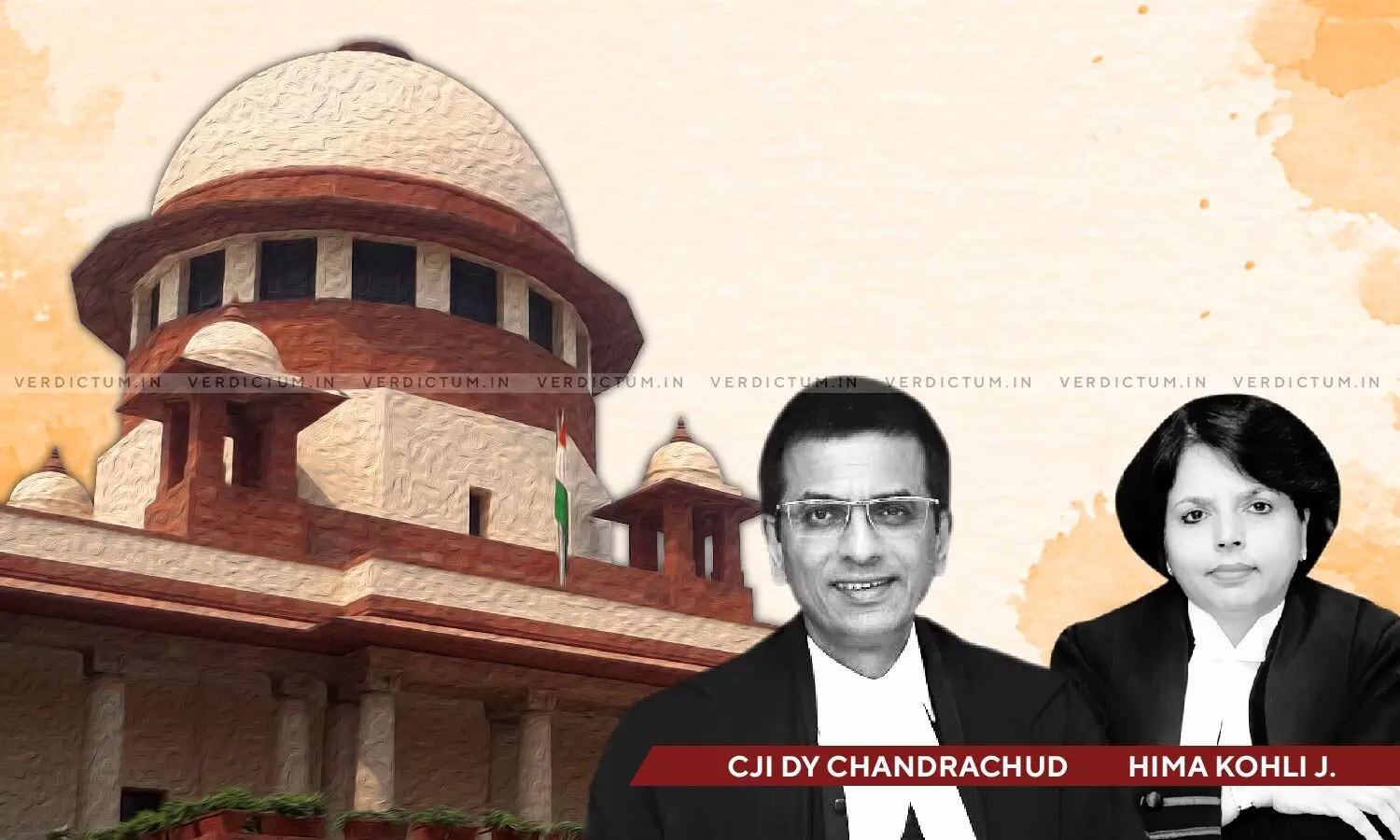
“Appellants Left In Maze Strenuously Fighting In Dark”- SC Holds Sealed Cover Procedure Restricts Principles Of Natural Justice
 |
|A Supreme Court Bench of Chief Justice Dr. DY Chandrachud and Justice Hima Kohli has observed that the sealed cover procedure restricts the core of the principles of natural justice, i.e., the right to a fair and reasonable proceeding.
Senior Counsel Dushyant Dave, Senior Counsel Huzefa A Ahmadi, and Senior Counsel Mukul Rohatgi appeared for the appellants. ASG KM Nataraj appeared for the respondents.
In this case, the Ministry of Information and Broadcasting had refused to renew the Malayalam news channel MediaOne’s broadcast license on the ground that the security clearance had not been given by the Ministry of Home Affairs. The Ministry had presented a sealed cover report before the Kerala High Court to justify its decision.
Condemning the procedure followed, the Apex Court observed that when relevant material is disclosed in a sealed cover, there are two injuries that are perpetuated, i.e., “First, the documents are not available to the affected party. Second, the documents are relied upon by the opposite party (which is most often the state) in the course of the arguments, and the court arrives at a finding by relying on the material. In such a case, the affected party does not have any recourse to legal remedies because it would be unable to (dis)prove any inferences from the material before the adjudicating authority.”
In light of the same, the Court observed that “The appellants’ right to writ remedies has been denied through a formalistic order by the High Court. The procedure that was followed by the High Court has left the appellants in a maze where they are attempting strenuously to fight in the dark. The non-disclosure of reasons for denial of security clearance to the appellants and the disclosure solely to the Court in a sealed cover has restricted the core of the principles of the natural justice - the right to a fair and reasonable proceeding.”
To safeguard the claimant against a potential injury to procedural guarantees in public interest immunity proceedings, the Court appointed an amicus curiae to balance the concerns of confidentiality with the need to preserve public confidence in the objectivity of the justice delivery process. In that context, it was said that “The amicus curiae appointed by the Court shall be given access to the materials sought to be withheld by the State. The amicus curiae shall be allowed to interact with the applicant and their counsel before the proceedings to ascertain their case to enable them to make effective submissions on the necessity of disclosure. However, the amicus curiae shall not interact with the applicant or their counsel after the public interest immunity proceeding has begun and the counsel has viewed the document sought to be withheld. The amicus curiae shall to the best of their ability represent the interests of the applicant. The amicus curiae would be bound by oath to not disclose or discuss the material with any other person, including the applicant or their counsel.”
In the matter, the Court while lifting the ban on the news channel also observed that the constitutional principle of procedural guarantees cannot be turned into dead letter. (Read Report)
Subsequently, the MIB was ordered to issue renewal permissions.
Cause Title: Madhyamam Broadcasting Limited v. Union of India & Ors.
Click here to read/download the Judgment